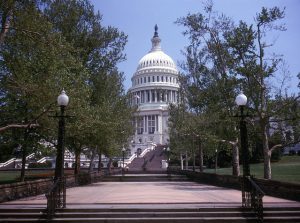San Jose’s Cannabis Tax Revenue Dips: A Call for Regulatory Revisions and Market Expansion
San Jose, a city known for its thriving cannabis industry, is facing a significant drop in cannabis tax revenue this year. The decline, projected to be in the millions, is attributed to the growing competition from the black market and cannabis delivery services. With a predicted $19 million budget shortfall for next year, boosting tax revenue from the cannabis sector remains crucial.
The city’s budget surplus currently stands at $35 million. However, the decline in cannabis tax revenue is a significant concern. In response, the San Jose City Council has shown interest in easing the regulatory burden on cannabis businesses. Recent moves include loosening cannabis business licensing laws governing where dispensaries can establish themselves and reevaluating penalties placed on legal businesses.
Illegal sellers appear to be capitalizing on the market, often operating as seemingly legitimate delivery services, without generating any tax revenue for the city. Sean Kali-rai, a lobbyist and founder of the Silicon Valley Cannabis Alliance, expressed his concern over the growing prevalence of unauthorized dealers. He stressed the importance of the city’s Division of Cannabis Regulation in overseeing and regulating the cannabis market.
 Cannabis Law Group's Medical Marijuana Legal Blog
Cannabis Law Group's Medical Marijuana Legal Blog






 Prosecutors for the U.S. attorney’s office in the Eastern District of California have launched a grand jury subpoena, calling for records from Californian marijuana based companies, including the parent company of Weedmaps.
Prosecutors for the U.S. attorney’s office in the Eastern District of California have launched a grand jury subpoena, calling for records from Californian marijuana based companies, including the parent company of Weedmaps. Three separate law suits have been filed, alleging that a Californian-based marijuana company and its key executive defrauded $1.2 million in loans from investors.
Three separate law suits have been filed, alleging that a Californian-based marijuana company and its key executive defrauded $1.2 million in loans from investors. Arroyo Verde farm, owned by Barry Brand in Carpinteria, was considered a prime example of how a legal cannabis business could flourish under close regulation from Santa Barbara County. Then in January, a sheriff-led raid of the farm found evidence to suggest the farm was not only selling licensed products, but also selling products on the illicit market too.
Arroyo Verde farm, owned by Barry Brand in Carpinteria, was considered a prime example of how a legal cannabis business could flourish under close regulation from Santa Barbara County. Then in January, a sheriff-led raid of the farm found evidence to suggest the farm was not only selling licensed products, but also selling products on the illicit market too.
 Sacramento, California could lead the way in showing other cities throughout the state how to institute new, and broaden existing, marijuana social equity plans.
Sacramento, California could lead the way in showing other cities throughout the state how to institute new, and broaden existing, marijuana social equity plans. The state of California has now permitted the legal use of marijuana for two years. And tax dollars collected from the cannabis industry are already showing great impact across a variety of sectors.
The state of California has now permitted the legal use of marijuana for two years. And tax dollars collected from the cannabis industry are already showing great impact across a variety of sectors.